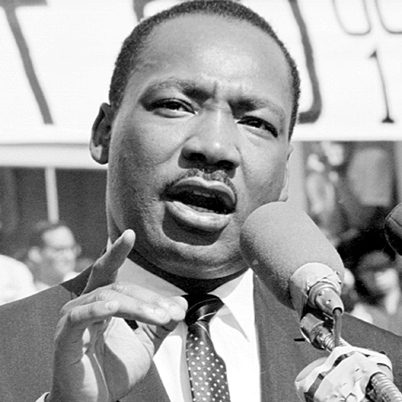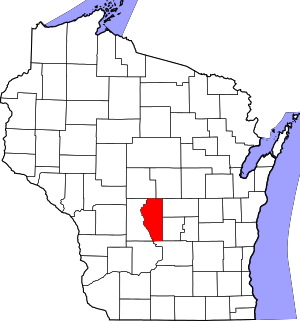(From a homily delivered by Ken Germanson to the Community of the Living Spirit, a nondenominational worship group in Waukesha WI on Jan. 14, 2024)
The inspiration for today’s homily comes again from my great grandfather William Day Simonds who as I’ve told you before was a prominent Unitarian minister first in Madison WI and later in Oakland CA. He often gave sermons based on various Shakespeare characters, and today we’ll be talking about Brutus.
Brutus, let me remind you, was a friend and companion of Julius Caesar, and appears in Shakespeare’s famous play, Julius Caesar. Brutus may be the most interesting figure in the play that featured not only the Great Caesar, but Marc Antony, Cassius, Cinna and other prominent figures of ancient Rome.
Indeed, in the play and in recorded history, Antony praises Brutus thusly, saying “This was a man!”
What made Brutus so notable and so important for us today is that he sacrificed his life to protect democracy from being destroyed by Caesar and his allies.
This all occurred in the years from 49 BC to 42 BC, when the mighty Caesar, riding high on the worshiping from the citizens of Rome due to his victories in the Pompeiian Wars, threatened to destroy the democratic form of government that Rome had established.
Brutus saw the dangers arising from the prospect of his longtime friend, companion and mentor Caesar who appeared to be headed toward destroying the world’s first democracy and turning it into a dictatorship. In seeing the growing tendency of Caesar to do away with democratic processes in Rome, Brutus after much debate with himself had joined with others, like Cassius (another prominent Roman tribune) to assassinate Caesar.
Brutus – always a man of great honor and integrity – joins with the conspirators to stab Caesar to death, at the same time urging his fellow murderers to treat their victim with honor and not disfigure him. Brutus is the last to raise his knife to slay his longtime friend, with the dying Caesar uttering the words (in Shakespeare’s play), “et tu, Brutus.” Historians dispute that Caesar did speak as he was being slaughtered.
Brutus is troubled by his action and makes this comment in the play:
“If there be any in the assembly, any dear friend of Caesar’s to him I say that Brutus’ love to Caesar was no less than his. If, then, that friend demand why Brutus rose against Caesar, this is my answer – not that I loved Caesar less, but that I loved Rome more.”
Indeed, many have characterized Brutus as a traitor to Rome for his role in the assassination of Caesar.
Pastor Simonds, however, believed that Brutus’ motives were strictly to save democracy and the Roman state.
Rome of the year 44 BC sounds strangely like the United States in 2024. Caesar’s victory over Pompey had so enamored him with the Plebeians of the day that they were ready to make him king – the equivalent of being a dictator. Mobs of that day must have shouted out with the same wild cheers that Donald Trump gets every time he mounts the stage.
Alas, the emperor may have no clothes, but his followers see only he’s wearing all the fineries of an ancient ruler. Today in 2024, some 30 to 35 percent of Americans care nothing for the crudeness and ruthlessness and the dishonesty and lack of integrity shown by Mr. Trump. He’s mesmerized his supporters, as Caesar had done more than 2000 years ago. A demagogue is dangerously close to succeeding in ending our democracy; Caesar was planning to become dictator in 44 BC and Donald Trump has already declared that he will become a dictator on his first day in office.
Obviously, we don’t advise the assassination of the former president as Brutus and his allies did, but we do indeed need to find people who would follow the example of Brutus and show courage to speak up to tell the truth about Trump and his plans . . . even if it endangers their own personal fortunes.
A few already have, like Michael Cohen, a onetime Trump attorney, but he did so mainly to save his own skin so as to receive light sentence.
Perhaps the person who may best exemplify the spirit of Brutus’ courage is the Cassidy Hutchinson, a young woman who at age 25 found herself as chief aide to Trump’s top deputy, Mark Meadows. Her testimony in 2022 of what she saw going on in the bowels of the White House has been devastating in the effort to hold Trump responsible for his actions in seeking to overthrow the results of the 2020 election.
Cassidy could easily have succumbed to pressure from Trump and his lackeys, who had hired an attorney to represent her in the Congressional hearings. The attorney basically told her to shut up and tell the examining committee nothing about what she saw; she fired the attorney chose to go with the truth, even though it meant divorcing herself from the connections and relations she had with her peers in the Trump Administration.
Make no mistake about it: it takes courage to be a “whistle-blower,” to go against the flow. In most cases, the truth-teller finds himself or herself all alone, out on the limb of a tree that feels like it might break off soon and plunge the person to a crushing fall.
To her fellow conservatives – the young Cassidy certainly came into the White House as a committed one – she was cast as a traitor. To those who dislike Trump, of course, she was a heroine.
I can’t imagine what it was like for this young woman from a working-class family in New Jersey to find herself deep within the workings of the most powerful office on earth. Remember, she was about as close to the source of that mighty power as anyone, particularly in her position as chief assistant to Mark Meadows, the man who had the ear of Donald Trump.
As it has happened, Cassidy has gained notoriety and has even authored a book, entitled “Enough,” from which she expects to profit. This leads one to wonder: were her motives as pure as they seem? Or, did she really seek personal profit in her actions?
Of course, we can’t probe her mind to find her true purpose, but the point is she had the courage to step forward to do right by her nation. It was a patriotic act, no matter how you want to cast it.
Shakespeare’s Brutus, as Pastor Simonds reminds us, was not a perfect person. Historians have described him as being arrogant and intolerant toward anyone of a lower status in society. Also, his wife, Portia kills herself, largely because of Brutus’ long absences from home, and because he refused to accept her warning that he should abandon his mission to destroy Caesar.
Regardless of the human frailties that Brutus may have exhibited, Pastor Simonds offers him as an example of what a human being must achieve. His sermon ends with these words (please excuse his use of the male pronoun, remember this was in 1898). He said:
“Our ideal man we can say – his aim is high and pure. His thought is broad and just. He seeks no conquest save over ignorance and cruelty and crime. . . His creed is peace. His religion is love. He rejects a patriotism that is only selfishness disguised, and courage exercised in cruelty. . . ‘The world is my country and to do good is my religion,’ is his confession of faith.”
That is the point of this sermon about Brutus. In all things, we must seek and tell the truth and to have the courage to speak up and act on that truth. That is the key to saving our democracy and our own souls.
READINGS:
“His life was gentle; and the elements
So mixed in him, that Nature might stand up
And say to all the world, THIS WAS A MAN!”
― William Shakespeare, Julius Caesar
*****
I speak not to disprove what Brutus spoke,
But here I am to speak what I do know.
You all did love him once, not without cause:
What cause withholds you then, to mourn for him?
O judgment! thou art fled to brutish beasts,
And men have lost their reason. Bear with me;
My heart is in the coffin there with Caesar,
And I must pause till it come back to me.
— Julius Caesar (Act 3, Scene 2, lines 73–108)
*****
Psalm 23:1-4
The LORD is my shepherd, I lack nothing. He makes me lie down in green pastures, he leads me beside quiet waters, he refreshes my soul. He guides me along the right paths for his name’s sake. Even though I walk through the darkest valley, I will fear no evil, for you are with me; your rod and your staff, they comfort me. You prepare a table before me in the presence of my enemies. You anoint my head with oil; my cup overflows. Surely your goodness and love will follow me all the days of my life, and I will dwell in the house of the LORD forever.
*****
“Even if you’re on the right track, you’ll get run over if you just sit there.” ~ Mother Teresa
*****
“The opposite of courage is not cowardice; it is conformity. Even a dead fish can go with the flow.” —Jim Hightower










